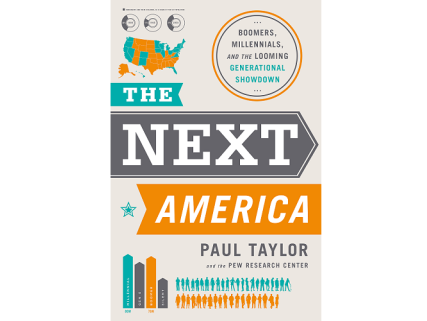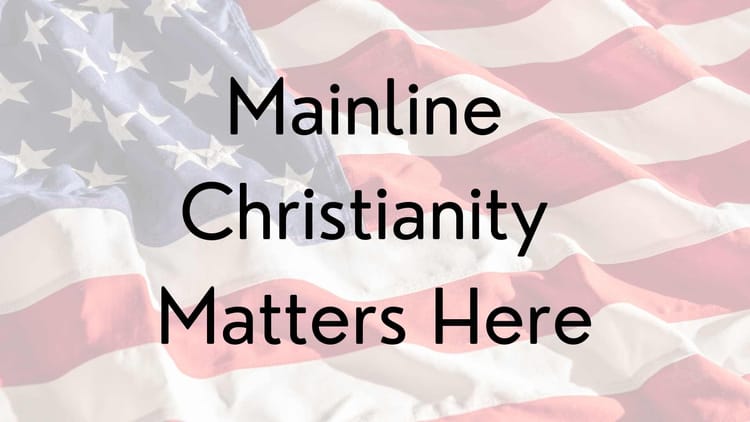Next America 8: Marriage Matters

The Next America: Boomers, Millennials, and the Looming Generational Showdown

from the perspective of an Episcopal priest.For a schedule of upcoming posts, click here. For the complete series, click here.
Section Summary
This chapter was eye-opening. I’ve seen the trend away from marriage at a micro-level, but never considered the macro-level implications. Here are brief takeaways:
- Only 20% of adults ages 18 to 29 are married today, compared with 59% in 1960.
- About 4 in 10 people say marriage is becoming obsolete. This is a higher ratio than existed when the divorce rate peaked.
- Many young people today aren’t marrying because they feel too poor. The irony is that marriage is consistently associated with positive economic outcomes, as well as overall happiness.
- Decades of young people putting off marriage while they seek a better financial status, thereby prolonging their poor financial status, have led to almost 1/3 of all households being headed by a single person.
- The general public doesn’t appear to be aware of marriage’s positive impacts on both financial and emotional health – or they would be getting married!
- The most important consequence of the decline in marriage is the significant rise in births outside of marriage: in 1960, only 5% of births were to unmarried mothers; in 2011, 41% of births were to unmarried mothers. (Wow, that is an 800% increase!) These births are largely not to teenagers, but to women in their 20s and 30s.
- The US combines high nonmarital birthrates, high divorce rates, and high turnover in cohabiting relationships. As a result, a teenager is less likely to live in a household with both biological parents in the United States than anywhere else in the world.
- A large body of research shows that young people do best when raised by both parents. Policy makers and the general public accept this research, but nobody seems to know how to do anything about it.
- The one group rushing to embrace marriage is same-sex couples. The general public has grown to accept this trend, with Millennials in strongest support.
- As a consequence of the shifting attitudes toward marriage, “family” now comes in many variations, but family bonds aren’t equally strong between all members.
The concluding line of this chapter is worth quoting in full:
As the Boomers grow older and the social safety net grows smaller, [our] resilience will be put to the test as the nation struggles to figure out how best to care for its elderly at a time when a growing share will have fractured families to which they are only loosely attached.
Churchwork Reflections
As a member of Generation X, with parents who divorced, I never even considered the possibility of getting married before I had a B.A., and for exactly the reasons cited in this chapter: I wanted to be able to support myself if needed. As a child (and a grandchild and great-grandchild) of divorce, I didn’t trust the institution of marriage.
I’m clearly not alone in this sentiment. The first church I served included three lovely young girls being raised by a single mother who had never married their fathers. I also remember officiating at a wedding at which the very young child of the bride and groom was part of the wedding party. And I’ve become accustomed to the fact that every couple I see for premarital counseling is already living together.
So I’m familiar with the decline of marriage on the anecdotal level. I just hadn’t stopped to ponder the multi-generational implications of this trend. What happens when you’re 70 years old and your closest relative is the child you didn’t raise (because you weren’t married to her mother)? How lonely is that? I can’t begin to imagine. What about when you are a single mother and you live far away from family and you have a special-needs child? Again, I can’t begin to imagine.
Can the church offer support, compassion, and education in the face of the decline of marriage? Too often, the church’s message in the face of marriage’s decline is either judgment or silence. That seems wrong to me. It feels like there should be a place for the church to say “Marriage is really, really hard sometimes, but in most instances it’s worth it to get married and stay married. We’re going to help you figure out how to do that.”
My husband and I have gone through hard times in our marriage. I think one of the reasons we’re still married is William Doherty’s wonderful book Take Back Your Marriage. I read it when we were about a year into our marriage and it helped me (as the daughter, granddaughter, and great-granddaughter of divorced parents – did I mention that before?) wrap my mind around what it meant to get and stay married.
Doherty is part of Smart Marriages, which has a ton of free resources for marriage education. But most of the material is for couples who are already married. What about the couples who don’t think marriage is for them?
The only way to reach people before they’re even thinking about marriage is in youth programs and young adult ministry. But telling teenagers that marriage is correlated with greater happiness and wealth makes me nervous. It feels so personal! This is despite the fact that the church sees marriage as a sacrament through which God’s grace is mediated for our salvation… and the fact that I’ve definitely experienced that as true in my own marriage. I’ve also never reviewed a youth curriculum that includes any consideration of marriage. Am I just missing them, or do they not exist?
Reflection to Action
For most of these chapters, I’ve felt like I had a clear way forward. This chapter leaves me feeling like I am stumbling around in the dark. The challenges are overwhelming. We need to:
- Teach youth and college-age students that marriage can be positive, especially if their parents are divorced/never married and/or they are wary of marriage..
- Teach married people the skills they need to improve their marriages and to stay married during tough times. (In my experience, this involves a lot of forgiveness, so one would think the church has some authority here.)
- Learn to give testimony to the grace of God experienced in marriage.
I feel a sense of resistance to all of this. I think the resistance is called “I’m a private person! I don’t want to be vulnerable, and I don’t want to mess around in people’s personal lives!” This resistance seems awfully familiar; it’s the tendency of the mainline church in the face of any invitation to evangelism. I am definitely in the mainline, so I’ve felt it before.
When I look at the statistics, I think I probably need to get over that resistance. There must be a way to be authentic to the church’s teaching about marriage as sacrament, my experience of the same, and the statistics without interfering in other people’s lives. Right?
Do you think the church should be engaged with these issues? What do you think we should do?





Member discussion